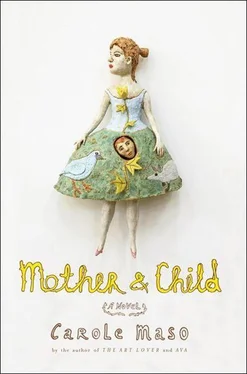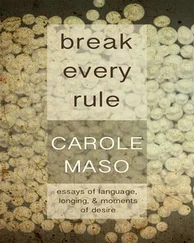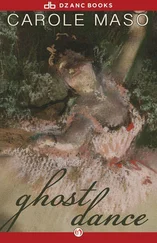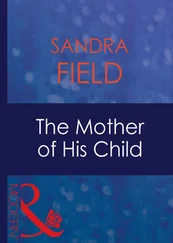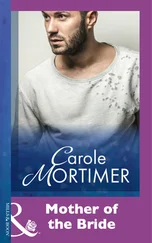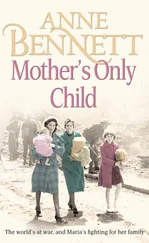SHE PICTURES HERSELF climbing floor after floor with the men, higher and higher up into the sky. Books line the walls on every floor, and it occurs to her this must be a library of some sort, or some other kind of repository. When they get to the top and stand on the curving roof, she understands it to be the city she once loved, and she looks out and she is filled with joy. How beautiful you are! she calls out.
Far below is the vortex: a commotion without sound, some sort of drama, hundreds of fire engines and ambulances rushing to the scene. The mother remembers standing high, high up, atop the beloved city. The mother remembers smoke, so much smoke, and at her back a searing heat. Between the mother and the ground far below, a force field now makes itself known and beckons her irresistibly to the street. The force becomes a pull so enormous that the mother names it Gloria so as to better withstand its call. She tries to step away, though all she wants is to move toward it now.
IN THE WEE hours, the mother, woken by a sound, followed a small flame into the Vortex Garden. There, before much longer, she would abandon herself to it — its blue heart, its heat, its light. Here, despite the advice of Cecil Peter and the elders, she would allow herself to burn. How exquisite is the sensation, the pull of sleep and smoke, the reduction to ash. What the bat had said was to prepare, and the flame had concurred. Who was the mother in the face of such directives? She felt herself dissolve in fire. She understood it in an instant. Soon they would be taken.
THE HOUSE SEEMED to grow light, and the air took on a peculiar quality — sparkly, as if you could see the bright molecules that made up the light. It looked something like pollen to the mother, and the mother was perplexed. The child wore a gleaming white dress and a veil and shoes with diamonds on the toes. The mother hoped it was not the child’s wedding day already. The child was still young, of this the mother felt certain. She took a few steps closer, and let out a sigh. It was the day of her First Communion. She was receiving the Body of Christ — that was all. No cause for alarm, she supposed. She could see it now. The bread, the wine; no cause for concern there, she guessed. There was no bridegroom yet to speak of.
But the long pine casket — who was that for? She did not know. Oh, it was not a casket after all, but the tall box the grandfather clock had come in from the North Pole. The mother laughed as the girl came closer. There were still many years together left to them.

THE GAP IN the life expectancy was widening according to the morbidity table. It was another part of the National Nightmare. Socioeconomic disparities declined in tandem with a decline in the mortality rate. The child did not quite understand what this meant. She always thought of tandem and bicycles as going together.
There was an island that allowed only bicycle traffic on it. The child sent away for a brochure. She and her mother might ride in tandem on a bicycle and breathe in the sea air. What could be better than a bicycle built for two? A bicycle was a good thing except that sometimes you saw things you did not want to, along the route. Poor people who were hungry and without houses, Witnesses of God with butterfly nets, or psychics with their useless bits of free-floating information about your past lives. They always wanted to tell you that you were once a peasant in Russia or a soldier in the Civil War, or that you had perished in the South Tower.
The mother was hoping that she and the child might live a long time together. When they pass the soothsayer in the bushes, the mother snarls, I was not a little girl in a babushka two centuries ago. Past lives are no comfort to her. I have this one little life, and the morbidity table, and the sea, and the sky, and the breeze, and the birds, and the bicycle, and the trees, and she opens her arms wide. Luckily the child is in the back to steer.
A SEA BREEZE blows and light pours through the chambers of the heart. Aunt Inga falls asleep.
THERE HAD BEEN a time once when the mother had a friend. Implausible as it seemed, they would go out to the bar on Ladies Night and have drinks with salt lining the rim in shapely glasses. Aside from these times with the friend, the mother had never drunk this drink, or any other. The friend had a small son, and she would bring him along to Ladies Night with her, and the mother would bring the child, and the children would play while the two mothers chatted and laughed and licked the salt and drank the drinks.
One night, the friend told the mother that even though she was only thirty-two, she had been diagnosed with a serious illness and that there was probably a gene from thousands of years ago that could be traced back to a small European village that was responsible for it. The mother, who had been a nurse before the child was born, had an inkling of what the gene might be, and she went home and prayed. Then she called her friend on the phone.
The mother apparently did not understand other people well, even the friend. The mother, without realizing it, had activated a peculiar mechanism in the friend, and by the time she hung up, she realized that there would be no more room for friendship. Never again would they go out to the bar for drinks and laugh and chat.
The mother thinks there are not enough human tears for certain kinds of sadness. When the mother sees the friend now, they wave to each other from a distance, but they are unable to cross the circle of salt each has drawn around the other.
From her memory bank now, she remembers the laugh that once came out of one of the ladies’ mouth at the next table at Ladies Night. The laugh was coming out of the lady’s mouth, but the mouth was taut and unmoving, and it seemed like it must be some sort of trick mouth or artificial mouth, but still sound came out of it, and words. When the mother asked her friend, the friend said casually that this was a result of the Plastic Surgery. She was very matter-of-fact about it, and the mother had liked that. You never knew what you might hear or see, she thought to herself. This was the very reason that the mother and child did not often go out to a restaurant or a bar. But it was different when she was with the friend. With the friend she felt protected.
LITTLE VORTICES BECAME big vortices, and the forward-going band of soldiers on horses began to turn in circles, faster and faster, and were carried up by the high and whirling winds into the sky where, frightened, they cried out for their mothers.
CECIL PETER CAME in breathlessly and announced that the New Age of Funnels had definitively arrived, there could be no doubt. He drew mad spirals with chalk on the path and shouted as if otherwise he would not be heard. It frightened the mother to see Cecil Peter like this. How many able-bodied men had been taken and how many were yet to be taken? he bellowed. He pointed to the flame perched on the mother’s shoulder, which he could not brush away no matter how hard he tried. Watch out with that thing! Cecil Peter said. The mother looked around her. For now, though Cecil Peter carried on like mad, all seemed calm and bright.
EVEN THOUGH THE winds were all around, and near her ankles little vortices whirled, the mother went in search of a piano for the child. There was a simplicity and directness to the task that she liked very much. It was obvious to the mother that if you didn’t learn to play the piano, your life would be less complete and your world diminished. She closed her eyes and began to envision the piano. She did not worry so much about its elegiac qualities: the dark mahogany or the ivory. Besides, hardly any keys were made of ivory anymore.
Читать дальше
